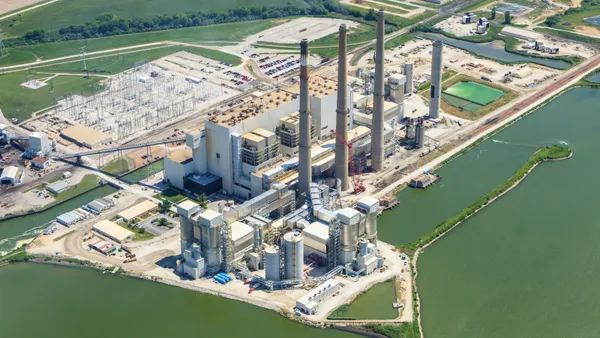Dive Brief:
-
Federal Energy Regulatory Commissioner Neil Chatterjee on Tuesday called on Congress to update federal energy policy to alleviate some of his agency's work load.
-
"Legislative intransigence in Washington has put more and more of the critical decision making in the hands of agencies throughout the government that may not necessarily have the tools to address the complex challenges before us," he said during a virtual webinar hosted by K&L Gates.
-
He noted that most policy that's been passed since 2005 has been either in the form of tax bills or omnibus appropriations — such as the American Energy Innovation Act included in stimulus spending. That lack of action has made it more difficult to regulate the fast-changing energy sector, Chatterjee said.
Dive Insight:
Congress in December passed a COVID-19 stimulus bill that included a number of provisions from the Senate's American Energy Innovation Act, as well as tax credit extensions and additions for renewable energy technologies.
But tax extensions and omnibus spending bills do not adequately address the many challenges the power sector faces in its rapid transition toward a cleaner, more distributed grid, said Chatterjee, who formerly worked under then-Senate Majority Leader Mitch McConnell. As a result much of the federal action that's needed to address some of these opportunities and challenges has fallen on FERC.
The 2005 Energy Policy Act was signed by President George. W Bush, and authorized loan guarantees and tax incentives for resource technologies such as renewables, carbon capture, and advanced nuclear. Since then, "the energy world, the energy landscape, energy markets have transformed completely," Chatterjee said.
"So it falls to agencies like FERC to make some of the difficult choices that will lay that framework for stakeholders moving forward," said Chatterjee, adding "it's been difficult to kind of address the complex challenges that have arisen without that guidance from Congress."
Chatterjee touted several of the orders implemented during his time as chair — Order 2222, which lowers barriers to distributed energy resources in the wholesale markets, and Order 841, which does the same for storage — but added that he had to be "highly intentional" about where to focus the agency's time and attention, given limited bandwidth.
The new FERC composition — now chaired by Richard Glick — should focus immediately on transmission, he said.
"Ensuring that there's sufficient transmission to support the growing fleet of renewable resources, to me, that's priority one," Chatterjee said. Those sentiments have been echoed regularly by Chair Glick, who has said continuing to lower barriers to new clean energy technologies and rethinking capacity markets will be among his priorities as well.
Chatterjee said he continues to believe FERC will play an important role in forwarding the energy transition, and that its central role is what drew him to the agency in the first place, leaving his role under McConnell in 2017.
"I understood back then that FERC would ... play an increasingly important role in the energy transition and in our energy landscape," he said. And because of its bipartisan, independent nature, "the actions FERC could take to really advance the energy transition would not only A) withstand legal scrutiny and survive court challenges, but B) would stand political scrutiny, because they're boring."














